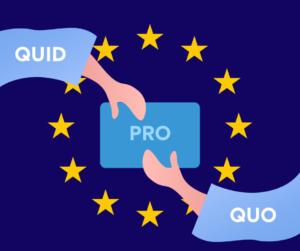Headquarters: Svetog Nauma 7, 11000
Office address: Đorđa Vajferta 13, 11000
Phone:: +381 11 4529 323

All quiet on the Western Front: the State of the Union address by the EC President Jean-Claude Juncker before the members of the European Parliament (MEPs) was, in accordance with all expectations, dominated by the topics of security, economic growth, European values, Investment Plan, crumbling solidarity. “Never before have I seen such little common ground between our Member States. So few areas where they agree to work together.“ State of the Union is in fact a speech delivered by the head of the European Commission once a year, on the occasion of the first EP plenary session in Strasbourg, where he/she focuses on the current issues in the EU and announces the planned initiatives for the upcoming year. This speech, at the same time, serves the purpose of demonstrating the EU’s power and its responsibility as a global actor. It is equally supposed to bring impetus into the EU’s functioning. Bearing in mind the problems the EU is facing nowadays, perhaps the expectations regarding this speech were too high. Policy community interested in our region was disappointed that Juncker has not paid a single word on enlargement policy and the Western Balkans.
Unfortunately, this is not the worst thing that we could deduct from this speech. The announcement of the legislative proposal for the passenger control mechanism for the Schengen visa-except third-country nationals (among which are the Serbian citizens and the UK nationals in case of Brexit, for example) is a much greater reason for concern. European Travel Information and Authorisation System (ETIAS) would have for its objective to determine the eligibility of all visa-exempt third country nationals to travel to the Schengen Area, and whether such travel poses a “security or migration risk.” According to this initiative, each passenger would be obliged to fill in the application form with the questions related to the person’s identity, the duration and the purpose of travel, etc. The data would be stored in a centralised database, based on which the positive or negative decision on the entry of the passenger in the Schengen zone would be made. The concrete legislative proposal for the introduction of this mechanism is scheduled for November this year.
Such initiative, which to a large extent resembles the USA’s ESTA system, is somewhat justified in the context of allegedly comprehensive containment of the security threats. What remains to be seen, however, is whether the EU will charge the fee for filling in this application and under what would be the amount of the fee. The French outlet of the Euractiv media portal reported that, according to the reliable unofficial sources, this amount would go from 10 to 50 euros. In practice, this would mean that every Serbian citizen needs to pay a fee for entering a Schengen country each time before his/her visit.
Such a scenario would have immense practical and political implications for the Western Balkan region. The citizens would travel less due to the newly imposed levy, whereas politically, such decision would signal even further and longer European perspective of the region. The legislative proposal due in November will show whether these allegations are false or not. After that, through streamlined advocacy and concrete proposals for amendments to the draft regulation (with the help of the MEPs who strongly endorse Western Balkans countries’ EU membership), we can influence the decision making and prevent the described worst-case scenario.